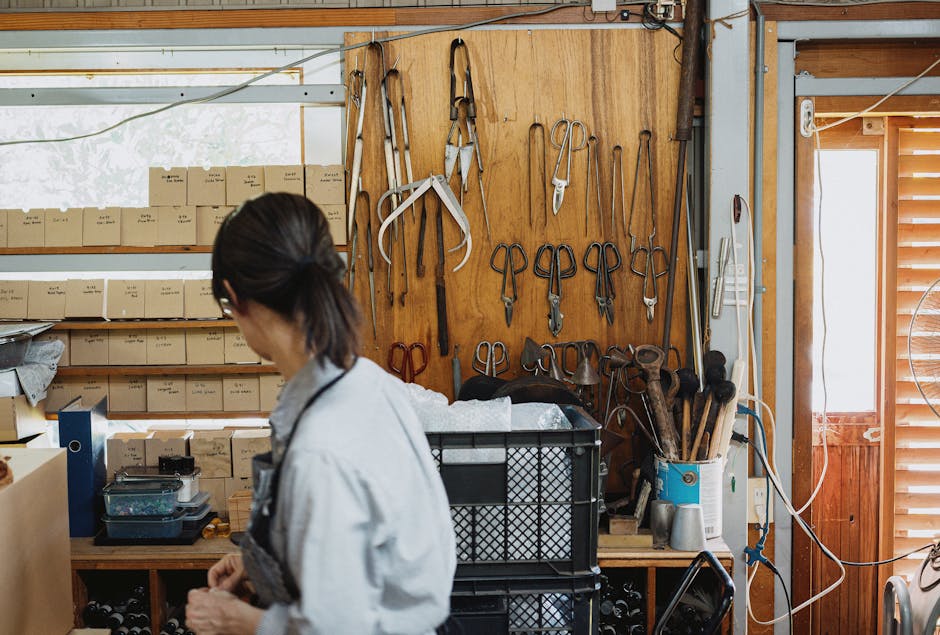Celebrating Craft: Echizen City, Fukui, Joins UNESCO Creative Cities Network, Unveiling New Possibilities

There's a palpable excitement brewing in the heart of Japan, specifically in Fukui Prefecture, as Echizen City (越前市) has recently been designated a UNESCO Creative City. This esteemed recognition shines a spotlight on Echizen's profound heritage, specifically its unparalleled commitment to traditional crafts (伝統工芸). As a curator of crafts, I find this news incredibly inspiring, heralding a new era for these ancient arts and the artisans who keep them alive.
Echizen: A Tapestry Woven with Centuries of Craftsmanship
Echizen City has long been a quiet powerhouse of Japanese craftsmanship. For centuries, the region has been a crucible where ingenuity, natural resources, and an unwavering dedication to excellence have forged some of Japan's most revered traditional arts. This designation as a UNESCO Creative City, the 12th in Japan to receive such an honor, is a testament to the enduring legacy and contemporary relevance of Echizen's unique cultural landscape.
The Soul of Paper: Echizen Washi
Perhaps one of the most celebrated crafts from Echizen is Echizen Washi (越前和紙), a traditional paper-making technique with a history stretching back over 1,500 years. The story of Echizen Washi is one of remarkable resilience and artistry. Artisans here use traditional methods, meticulously working with fibers like kozo, mitsumata, and gampi to produce paper of extraordinary strength, texture, and beauty. Each sheet is a testament to their exceptional skill, born from generations of experience. From delicate calligraphy paper to robust art canvases and even modern architectural elements, Echizen Washi continues to adapt, finding its place in contemporary life while retaining its ancient soul.
Forged with Fire and Skill: Echizen Uchihamono
Another pillar of Echizen's craft heritage is Echizen Uchihamono (越前打刃物), the art of forged blades. With a history spanning over 700 years, this craft evolved from making swords for samurai to creating indispensable tools for agriculture and, famously, professional kitchen knives. The artisans, known as blacksmiths, possess an incredible understanding of metal. They transform raw steel through a grueling process of heating, hammering, shaping, and tempering, culminating in blades renowned for their sharpness, durability, and elegant forms. The commitment to materials is paramount, as is the mastery of age-old forging techniques. Today, Echizen Uchihamono knives are prized by chefs and cooking enthusiasts worldwide, embodying a perfect blend of tradition and modern utility.
Earth's Embrace: Echizen Ware
Among Japan's "Six Ancient Kilns," Echizen Ware (越前焼) stands as a monument to natural beauty and rustic elegance. Dating back to the 12th century, this pottery tradition is characterized by its unglazed, wood-fired pieces. The distinctive earthy tones and natural ash glazes are not applied but are rather the result of the kiln's intense heat and the interaction of wood ash with the local clay. The potters' skill lies in their ability to coax these organic patterns from the raw materials, creating pieces that feel deeply connected to the earth. Echizen Ware graces many homes and restaurants, offering a warm, authentic touch to modern dining and interior design.
A Future Forged in Tradition
The UNESCO Creative City designation, specifically recognizing Echizen City for its "traditional crafts," is more than just an accolade. It is a powerful affirmation of the artisans' dedication, the communities' support, and the global appeal of these living traditions. It underscores how these crafts are not merely relics of the past but vibrant, evolving art forms that continue to enrich our lives.
This recognition will undoubtedly open new avenues for international collaboration, cultural exchange, and sustainable development for Echizen City and the greater Fukui Prefecture. It provides an incredible platform for these skilled artisans to share their stories, their techniques, and the profound beauty of their creations with a wider audience. The future of traditional crafts in Echizen is bright, promising to inspire new generations of makers and appreciators alike.
Comments
Post a Comment